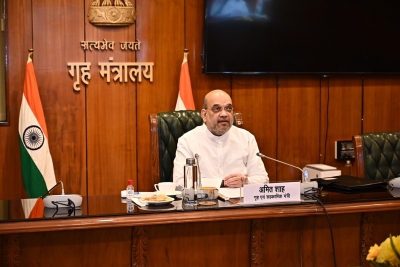New Delhi: The rules for implementation of the contentious Citizenship (Amendment) Act, 2019 (CAA) are likely to be notified Monday to facilitate the granting of citizenship to undocumented non-Muslim migrants from Pakistan, Bangladesh and Afghanistan, according to sources.
Once the CAA rules are issued, the Modi government will start granting Indian nationality to persecuted non-Muslim migrants from Bangladesh, Pakistan and Afghanistan — Hindus, Sikhs, Jains, Buddhists, Parsis and Christians — who had come to India till December 31, 2014.
The CAA was passed in December 2019 and subsequently got the President’s assent but there were protests in several parts of the country against it. Over a hundred people lost their lives during the anti-CAA protests or police action.
The law could not come into effect so far as rules have to be notified for its implementation.
According to the Manual on Parliamentary Work, the rules for any legislation should be framed within six months of presidential assent or the government has to seek an extension from the Committees on Subordinate Legislation in Lok Sabha and Rajya Sabha.
Since 2020, the Home Ministry has been taking extensions at regular intervals from the parliamentary committee for framing the rules.
The Ministry of Home Affairs has readied a portal for the convenience of the applicants as the entire process will be online. The applicants will have to declare the year when they entered India without travel documents.
No document will be sought from the applicants, an official said.
Union Home Minister Amit Shah December 27, 2023 said that no one can stop the implementation of the CAA as it is the law of the land and accused West Bengal Chief Minister Mamata Banerjee of misleading people on the issue.
Addressing a party meeting in Kolkata, Shah said it is the BJP’s commitment to implement the CAA.
The TMC, led by Mamata Banerjee, has been opposing the CAA since the beginning.
The promise of implementing the controversial CAA was a major poll plank of the BJP in the last Lok Sabha and Assembly polls in West Bengal.
The saffron party’s leaders consider it a plausible factor that led to the rise of the BJP in Bengal.
Meanwhile, in the last two years, over 30 District Magistrates and Home Secretaries of nine states have been given powers to grant Indian citizenship to Hindus, Sikhs, Buddhists, Jains, Parsis and Christians coming from Afghanistan, Bangladesh and Pakistan under the Citizenship Act, 1955.
According to the annual report of the Ministry of Home Affairs for 2021-22, from April 1, 2021 to December 31, 2021, a total of 1,414 foreigners belonging to these non-Muslim minority communities from the three countries were given Indian citizenship by registration or naturalization under the Citizenship Act, 1955.
The nine states where Indian citizenship by registration or naturalisation is given under the Citizenship Act, 1955 to non-Muslim minorities from Pakistan, Bangladesh and Afghanistan are Gujarat, Rajasthan, Chhattisgarh, Haryana, Punjab, Madhya Pradesh, Uttar Pradesh, Delhi and Maharashtra.
Interestingly, authorities of none of the districts of Assam and West Bengal, where the issue is politically very sensitive, have been given the powers so far.
PTI

